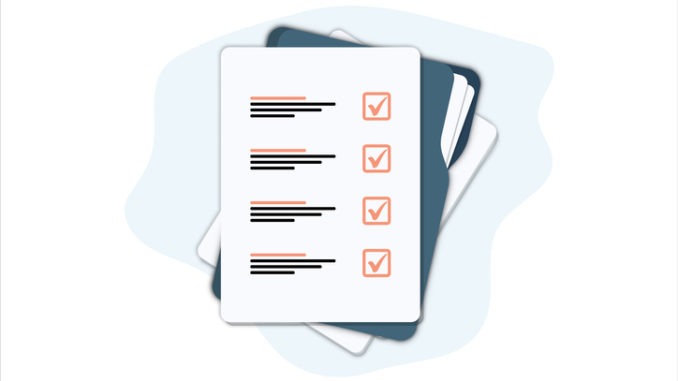
It is important to be prepared for a CQC inspection, and it’s especially important to know the questions you may be asked, and how you should answer
As the saying goes, ‘Fail to prepare – prepare to fail.’ It is crucial that, once an inspector has ‘phoned the practice to announce the CQC inspection, and a letter has been sent to confirm the date, you begin to prepare. You should be given at least two weeks’ notice which you should use wisely to ensure you are as ready as you can be.
In the meantime, you will also be asked for some information and you have five working days to respond; it should be clear what information you need to send, where to send it, and who to contact if you have any questions.
During the inspection the inspector will ask a number of questions so it is best to have an idea of what they may be so you can be prepared. The BMA has collated a list of potential questions that you could be asked.
The types of questions that a CQC inspector may ask non-clinical staff
- How long have you been working here?
- What it is that you do at the practice?
- Do you have an updated job role responsibility and description, contract and staff
handbook?
- Name one good thing you like about your work?
- Do you have any concerns?
- Do you feel supported?
- How are you treated by the management and partnership?
- How did you apply for your job?
- Did you have an interview when you applied for the job?
- Were references taken when you were appointed?
- Did you have a CRB/DBS check for the current position?
- Have you received training? Describe it.
- Do you have regular meetings – as a practice or individual?
- Are you included in adding to the agenda and receiving meeting minutes?
- Do you have staff appraisal?
- Where are the anaphylactic kits, and are they checked regularly?
- Do you know about vulnerable adults and children, and who is the lead? What do
you do for out of hours or if the lead is not here?
- Are you aware of a whistle-blowing policy, and do you feel free to ‘blow the whistle’ if
and when necessary?
- How do you react when you read NHS choices, if there is a complaint?
- Do you know about the complaints’ procedure and can you describe it?
- What do you do if a patient is sick in the waiting room?
- How do you operate the appointment system?
- Has there been any significant event that you know about?
- Confidentially and privacy ‐ how do they work when dealing with patients?
- How do you treat people with dignity and respect?
- Describe the chaperone policy and procedure, and is training provided for
chaperones? Are you a chaperone? If yes, describe your role and responsibilities.
- How are areas kept clean and tidy? Do you have any concerns about the cleanliness
of any areas?
- Do you have an incident and accident book, and where is it kept?
The inspector might ask entirely different questions, but these are the types of question that members of staff at the practice should prepare for.
In addition to potential questions, the BMA has also created a quick guide to how you should answer an inspector’s questions.
Answering CQC inspector questions during a GP practice CQC inspection – hints and tips for
the clinical workforce
- Put the patient at the centre of all your answers, talk about the patient journey and
how you work with other health, social care and voluntary service providers by optimising the care service plan. Highlight past situations/cases (both clinical and non‐clinical) where you can illustrate your point more clearly, helping you to demonstrate compliance with CQC.
- Remember all the different types of patients you deal with – patients with dementia,
disabilities, learning difficulties, non‐English speaking, adults and children – and how
you flex the service to ensure the different population groups get the best possible outcomes, in line with the CQC key lines of enquiry (KLOE).
- Be descriptive in informing the CQC inspector of any process, situation or system. Try
to answer questions assuming the CQC inspector knows nothing about your service. The inspector will write down and report what they hear, so make your answers clear.
- Talk about how you share information across the workforce to include communicating
with other organisations and agencies (health visitors, community matrons, district
nurses, safeguarding, schools, local authorities etc.) for example, meetings, standing agendas, communication forums.
If you don’t know the answer to a question, try and stay away from saying ‘I don’t know’ or ‘That’s not my role’. Instead, say you will get a colleague who can help to answer the question with you, or access information to help you answer the question.
- If you don’t understand a question ask the inspector to repeat it, or ask them to ask it in a different way.
- Talk about any training and or resources you have accessed or used.
- Mention any legislation, guidance, policies, protocols, NICE and other best practice, and other procedures in relation to the question.
- Discuss audits, learning cycles and significant events and how you learn from these and improve the service and care you offer.
Remember, this is an opportunity to talk about how good/outstanding your services are, and how your role contributes to providing quality, safe services where the patient experience, and care, are maximised.


Be the first to comment